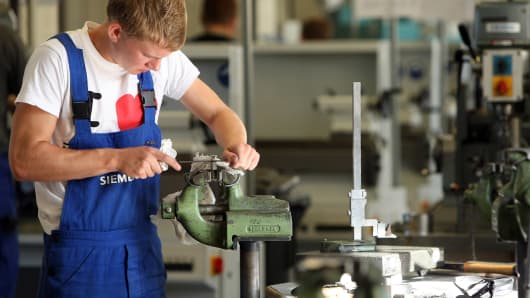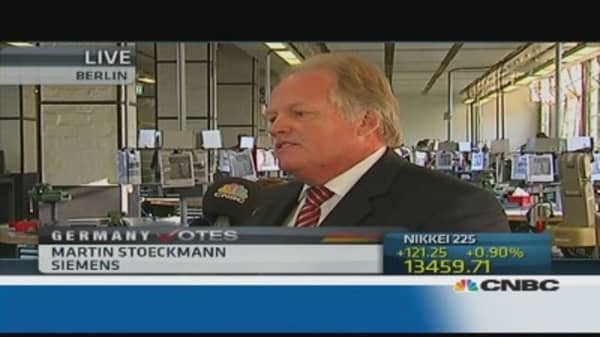The state-encouraged schemes combine apprenticeships with vocational education in a school or college to gain theoretical knowledge.
"The advantage for (young people) is that they gain a high employability and…for the companies is we train our own employees for the future. More than 80 percent stay at the company and get long-term employment," Martin Stoeckmann, the head of the education and training center at Siemens told CNBC.
The schemes are contributing to the German economy too, according to economists.
"Germany is close to full employment right now and apprenticeships are clearly something that have helped drive growth - the apprenticeship schemes work very well in the family-run Mittelstand (small and medium sized enterprises -- SMEs) as it provides cheap labor for companies while young people get training," ING economist Carsten Brzeski said.
The apprenticeships work so well in fact, that there was anecdotal evidence of SMEs struggling to find apprentices as there weren't enough young Germans to join them.
(Read more: German politiciansmust maintain stability: Infineon CEO)
The German government in June launched a drive to attract young people from Britain to come to the country and work as apprentices.
Many of Neumann's university-educated friends are now struggling to get a job.
"I'm learning a new language and German is probably the best language for engineering," she said. It's a great opportunity."






